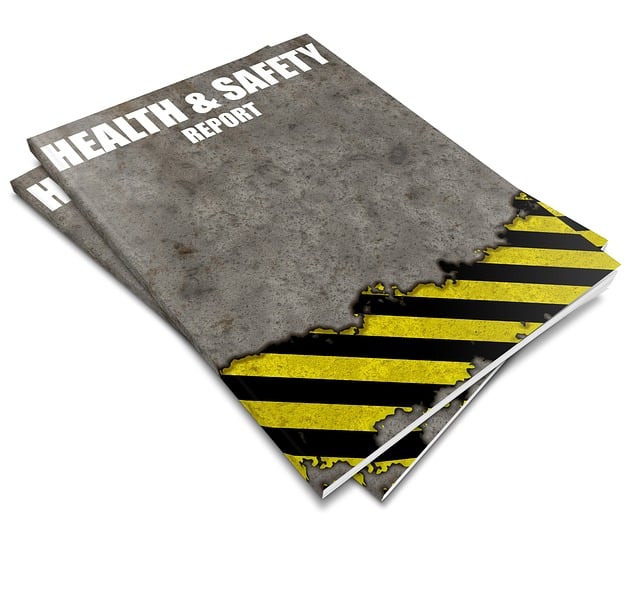Translation services for UK Public Health Reports are essential for ensuring that critical health information is accessible and understandable to all linguistic groups within the diverse population of the UK. These services must integrate advanced technology with expert linguistic knowledge to provide accurate, culturally sensitive translations that resonate with different communities. By doing so, they enable effective public engagement and can significantly improve health outcomes by making complex public health data clear and actionable for non-English speakers. The future of translation in UK Public Health hinges on a blend of AI, ML, and human expertise to provide equitable access to vital health information across the nation.
UK public health reports offer critical insights into the nation’s well-being, yet their impact is often limited by language barriers. This article delves into the pivotal role of translation services in demystifying complex health data for diverse UK communities. We explore the nuances of translating public health information accurately and accessibly, addressing both the challenges and opportunities presented by multilingualism. From best practices to technological advancements, this comprehensive guide illuminates how translation services can enhance understanding, inform policy, and ultimately improve public health outcomes across the UK’s linguistic landscape.
- Overview of UK Public Health Reporting
- The Importance of Clear Communication in Public Health
- Role of Translation Services in Public Health
- Challenges in Translating Public Health Data and Reports
- The Impact of Multilingualism in the UK
- Key Elements of Effective Translation for Public Health
- Identifying Target Audiences for Translation Efforts
- Techniques for Accurate and Accessible Translation
- Case Study: Successful Public Health Report Translation Projects
- Future Directions for Translation Services in UK Public Health
Overview of UK Public Health Reporting

Accessible communication of public health information is a cornerstone of effective healthcare strategies, especially within the diverse cultural landscape of the United Kingdom. The UK’s public health reports are comprehensive documents that compile data on disease prevalence, health outcomes, and policy evaluations. To ensure these critical reports reach and resonate with a broad audience, including non-English speaking communities, translation services for UK Public Health Reports play a pivotal role. These services facilitate the dissemination of health information in multiple languages, thereby enhancing understanding and compliance among diverse populations. This democratization of public health data empowers individuals from different linguistic backgrounds to make informed decisions about their health and well-being. Moreover, the provision of translations not only aids in public health surveillance but also supports healthcare professionals in their multicultural interactions, ultimately contributing to the improvement of health outcomes across the UK’s multifaceted communities. Consequently, the integration of professional translation services within the public health sector is not just beneficial but essential for fostering inclusive and equitable health communication.
The Importance of Clear Communication in Public Health

Navigating the complexities of public health data is a critical task for policymakers, healthcare providers, and the public alike. The clarity and accessibility of this information can significantly influence how effectively measures are implemented and adhered to within communities. In the UK, where a diverse population speaks a multitude of languages, translation services for UK Public Health Reports become paramount. These services ensure that critical health information is accurately conveyed across linguistic barriers, allowing for a broader reach and more informed decision-making among individuals who may not have English as their first language. By providing precise translations of public health reports, these services empower all members of society to understand and act upon important health guidance, thereby promoting equity in health outcomes and fostering inclusive public health strategies. The availability of high-quality translation services not only enhances the comprehensibility of health-related information but also supports the UK’s commitment to providing clear communication in public health, ultimately contributing to a more resilient and healthy populace.
Role of Translation Services in Public Health

The intersection of translation services and public health within the UK context is a critical area that enhances the accessibility and effectiveness of health communication. As the UK continues to be a melting pot of cultures, with individuals from diverse linguistic backgrounds residing within its borders, the role of professional translation services becomes increasingly vital in the realm of public health reporting. These services ensure that vital health information contained within UK Public Health Reports is accurately conveyed across multiple languages, thereby reaching and educating a wider audience. This inclusivity not only aids in preventing language barriers from becoming obstacles to healthcare but also empowers all community members to make informed decisions about their health based on the latest public health data and guidance.
Furthermore, the deployment of translation services for UK Public Health Reports is essential for harmonizing communication between healthcare providers and patients who are not native English speakers. It facilitates the seamless dissemination of critical public health information, such as health guidelines, disease prevention strategies, and vaccination schedules, ensuring that no individual is left behind due to language differences. The integration of high-quality translation services in public health efforts underscores the commitment to providing equitable healthcare information to all segments of the UK population, thereby fostering a more resilient and informed community in the face of public health challenges.
Challenges in Translating Public Health Data and Reports

Navigating the complexities of public health data requires a nuanced approach, especially when translating these reports for an audience in the UK. The challenges inherent in this task are multifaceted, beginning with the linguistic precision necessary to accurately convey medical terminology and statistics. Translation services for UK Public Health Reports must contend with the specificity of health-related vocabulary, which often varies between countries due to differences in healthcare systems, diagnostic criteria, and treatment protocols. This necessitates a deep understanding of both the source and target languages, as well as the context within which the public health information is presented.
Furthermore, cultural sensitivity is paramount when translating such critical reports. The interpretation of public health data must consider cultural nuances and the socio-political landscape of the UK to avoid misinterpretation or unintended bias. Additionally, the translation process must ensure that the data remains accurate, accessible, and actionable for policymakers, healthcare providers, and the general public. To achieve this, translators must not only be proficient linguists but also knowledgeable about the subject matter, possessing a comprehensive grasp of public health dynamics and the implications of health-related information on different populations. Employing expert translation services for UK Public Health Reports is thus an indispensable step in facilitating informed decision-making and public engagement with these vital documents.
The Impact of Multilingualism in the UK

In the multicultural tapestry that is the United Kingdom, multilingualism plays a pivotal role in public health communication. The diversity of languages spoken within the UK’s borders necessitates effective translation services for UK Public Health Reports to ensure that critical health information is accessible and understood by all segments of the population. This inclusivity is not merely a matter of equality but an essential component of public health strategy, as it directly impacts the effectiveness of disease prevention, vaccination campaigns, and health awareness initiatives. By providing accurate translations, these reports can reach a broader audience, facilitating better health outcomes for non-English speaking communities. The impact of such translations extends beyond mere comprehension; it empowers individuals with the knowledge to make informed decisions about their health, thereby contributing to the overall well-being of the nation and enhancing the public health response to various health challenges. As such, investing in robust translation services for UK Public Health Reports is a critical step towards equitable healthcare and improved public health outcomes across the UK’s linguistic spectrum.
Key Elements of Effective Translation for Public Health

In the realm of public health, clarity and accuracy are paramount when conveying information to the general populace. Translation services for UK Public Health Reports play a crucial role in ensuring that health-related data and recommendations are accurately interpreted and communicated across diverse linguistic groups within the United Kingdom. Effective translation involves more than mere word-for-word conversion; it necessitates a deep understanding of both the source and target languages, as well as cultural nuances that could alter the meaning of the text. Professionals specializing in such translations must be adept at handling technical terminology prevalent in public health, ensuring terms like ‘incidence rates’ and ‘prevention strategies’ are rendered in a manner that aligns with their UK counterparts. This is not merely a matter of linguistic skill but also involves an appreciation for the local context, idioms, and idiomatic expressions to guarantee messages are conveyed as intended.
The integrity of public health reports hinges on the translation process being meticulous and reliable. For instance, when translating reports on infectious diseases, it is essential that terms related to symptoms, treatment protocols, and prevention measures are consistent with UK medical standards. This level of precision is indispensable for maintaining public trust in health information and fostering informed decision-making. Moreover, translation services must adhere to ethical guidelines and privacy regulations, safeguarding sensitive information throughout the process. By leveraging advanced translation technologies and expert linguists, these services can bridge language barriers, ensuring that all UK residents have equitable access to critical public health information, thereby promoting better health outcomes and a more informed society.
Identifying Target Audiences for Translation Efforts

To enhance the accessibility and impact of UK public health reports, it is imperative to identify the target audiences for translation efforts effectively. These reports often contain critical information that can significantly influence the health outcomes of various demographics within the UK. By leveraging professional translation services, the nuances and complexities of health data can be accurately conveyed to individuals who may not have English as their first language. This is particularly crucial in areas with diverse populations where language barriers could otherwise impede the dissemination of public health guidance and information.
The process of identifying the target audience for translation begins with demographic analysis, focusing on communities with language preferences other than English. These might include ethnic minorities, migrants, refugees, or international students. Translation services for UK Public Health Reports should prioritize the languages most commonly spoken within these groups to ensure that the health information is accessible and actionable for all residents. By tailoring translations to meet the needs of these communities, public health officials can bridge communication gaps, foster greater health literacy, and ultimately improve health outcomes across the UK’s multicultural landscape.
Techniques for Accurate and Accessible Translation

In an era where public health information is paramount, the translation of UK Public Health Reports into accessible languages is crucial for inclusivity and understanding across diverse communities. To ensure that these translations are both accurate and accessible, translation services must employ a combination of linguistic expertise and cultural sensitivity. Firstly, translators should be proficient not only in the source and target languages but also in the specific terminology pertinent to public health. This involves a deep understanding of medical jargon and concepts, which can be challenging due to the nuances and complexities inherent in health-related content. Translation services must leverage specialized translation software that is trained on large datasets of public health reports to improve accuracy and consistency. Furthermore, these tools should be complemented by human expertise to refine translations, ensuring they resonate with the target audience’s cultural context.
Secondly, the process involves a strategic approach to language transfer, where contextual nuances are carefully preserved. This includes the use of clear and simple language appropriate for the intended audience, avoiding technical terms when simpler alternatives exist. Additionally, translation services should employ glossaries tailored to public health topics, which help maintain consistency in how terms are translated across different documents. To facilitate comprehension, visual aids such as infographics can be integrated alongside textual translations. This multimodal approach enhances the reader’s grasp of complex data and statistics presented in the reports. By combining technological advancements with human finesse, translation services for UK Public Health Reports can bridge gaps between health information and the diverse populations it aims to serve.
Case Study: Successful Public Health Report Translation Projects

UK public health reports often contain critical data and insights that are essential for informing policy, guiding healthcare practices, and educating the public on health-related matters. However, these reports can be challenging to comprehend for those outside the field due to specialized terminology and complex statistical analysis. To bridge this gap, translation services have become invaluable in transforming technical language into clear, accessible content that resonates with a broader audience within the UK. A successful public health report translation project was implemented by a leading public health organization, which aimed to convey the findings of a significant study on cardiovascular diseases to healthcare professionals and patients alike. By leveraging skilled translators who specialized in both medical and linguistic expertise, the project effectively adapted the content to suit the UK context, ensuring accuracy and relevance. The translated reports were not only more engaging but also facilitated better decision-making processes by stakeholders, highlighting the importance of clear communication in public health initiatives. As a result, similar translation projects have been adopted by other organizations, demonstrating a tangible impact on public health engagement and outcomes across the UK. These initiatives underscore the necessity for tailored translation services that cater to the specific needs of public health reporting, thereby enhancing the reach and effectiveness of vital health information.
Future Directions for Translation Services in UK Public Health

In the evolving landscape of public health, the role of translation services in the UK is becoming increasingly pivotal. As the nation’s population grows more diverse, with individuals from a myriad of linguistic and cultural backgrounds, the demand for accurately translated public health reports is essential to ensure equitable access to vital health information. The future directions for translation services within UK Public Health focus on integrating advanced technologies such as artificial intelligence and machine learning to enhance the speed and accuracy of translations. This innovation will not only aid in the timely dissemination of health guidelines but also improve the quality of communication across different communities, leading to better health outcomes. Moreover, there is a growing emphasis on context-specific translations that consider local dialects, idioms, and cultural nuances, which are critical for clarity and comprehension among non-native speakers. As such, the future of translation services in UK Public Health is set to be characterised by a blend of cutting-edge technology and a deep understanding of linguistic and cultural diversity, ensuring that health reports are not only accessible but also actionable for all members of society. The commitment to continuous improvement and adaptation in translation practices will undoubtedly contribute to the overall effectiveness of public health initiatives in the UK.
In conclusion, the translation of public health reports into accessible languages is a critical component in safeguarding the health of all communities within the UK. The article has highlighted the multifaceted nature of this task, from understanding the cultural nuances and linguistic nuances to the technical aspects of data. It is clear that translation services for UK Public Health Reports play an indispensable role in ensuring that vital information reaches a diverse population, fostering inclusive and effective communication. As we move forward, it is imperative that public health entities continue to harness professional translation capabilities to address the language barriers that can impede health outcomes. By doing so, they will enhance the understanding and application of public health advice across different linguistic groups, ultimately leading to a more robust and informed society. The future direction for translation services in UK Public Health is one that promises improved health literacy and equitable access to information, paving the way for better health decisions and outcomes for all.
